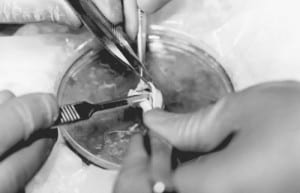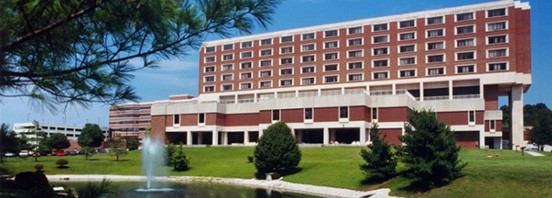 Beating the Clock? Frozen Ovaries Make Headlines
Beating the Clock? Frozen Ovaries Make Headlines
By Cindy Haines, M.D., Special to the Beacon
St. Louis Beacon, November 14, 2008
More women are waiting to start their families, delaying pregnancy until their mid- to late-30s, 40s and beyond. While pregnancy in a woman’s later years can carry some complications, “the biggest risk of delaying pregnancy is not being able to get pregnant at all,” said Dr. Jill Powell, assistant professor of medicine in the department of obstetrics, gynecology and women’s health at Saint Louis University School of Medicine. “We see all these celebrities having babies -even twins- in their 40s,and we take it for granted that we will be able to do it too.”
Powell cautions that women will experience a big drop in fertility beginning around age 38. It then falls more precipitously 40…
St. Louis’ Dr. Silber Makes Women’s Health History

One bright spot has surfaced in the field of fertility and it started here in St. Louis. The ability to freeze and transplant ovaries is a new option for women facing cancer therapy or for those women who want to delay pregnancy until later years. Dr. Sherman Silber, director of the Infertility Center at St. Luke’s Hospital, made international headlines with research presented this month at the annual meeting of the American Society of Reproductive Medicine (ASRM) held in San Francisco.
“We can transplant ovaries without any loss of ovarian tissue or eggs, and it functions perfectly normally whether it’s fresh or frozen,” Silber said. He and his team performed a ground-breaking trial in which they transplanted an identical twin’s ovary to her twin sister. A year later, the transplant recipient successfully conceived a child. The twin receiving the transplant had previously been unable to conceive due to premature ovarian failure…
While the details of this case are intriguing — one twin helping another to achieve motherhood — the real breakthrough, according to Silber, is the science. “We can freeze the ovaries of young women who are going to lose their fertility over time and transplant them back later, and they (the ovaries) won’t have aged,” he said.
Providing Hope for Young Women with Cancer
The breakthrough offers hope for women undergoing reproductively-destructive therapies, such as women with cancer facing chemotherapy or radiation. “If we take the ovary out, freeze it, save it and transplant it back later, they will be fertile again,” Silber noted.
This new application builds on current science that allows women to have their eggs frozen. “But freezing the ovary and putting it back is much more sure for the patient than egg freezing,” asserted Silber. “If you put all those eggs in one basket, and she goes through in-vitro fertilization, she can’t have any better chance of pregnancy than 50 percent. If she is not pregnant from that, then she’s finished.”
Other research presented at this month’s ASRM conference included a case study of one woman who had her ovary removed, frozen and then restored by Silber’s team, a procedure they have performed nine times…
| Dr. Cindy Haines is managing editor of Healthday-Physician’s Briefing and president of Haines Medical Communications Inc., a full-service medical communications and consulting firm. As a board-certified family physician, Haines is well-versed in all areas of health care, with particular interest in fitness, nutrition, and psychological health. You can listen to Dr. Haines’ House Call on KTRS. |
Video of Dr. Silber discussing Egg and Ovary Banking to Preserve Fertility
Cover story on The Riverfront Times: The Egg Man – Dr. Sherman Silber says he can extend a woman’s fertility by decades. He just needs to freeze her eggs or even a piece of her ovarian tissue; October 4, 2007
Listen to Dr. Silber discuss the biological clock, preserving your fertility and egg freezing on the KMOX Health and Fitness Show with Monica Adams.
Listen to Dr. Silber and Joan Hamburg discuss the infertility epidemic on WOR Radio in New York.
New Way to Extend Fertility: Freeze Ovary Tissue Wall Street Journal; April 26, 2007
Click Here
Beating Your Biological Clock
brochure page.
If you have any questions, you may call us at (314) 576-1400.
See also:
- Oocyte vitrification—Women’s emancipation set in stone – Fertility and Sterility
- Egg, Ovarian Tissue, Embryo, and Sperm Freezing
- In Vitro Fertilization (IVF)
- Egg Donation
- Freezing the Biological Clock
- Ovarian Tissue Freezing [technical video]
- News Coverage of Ovary Transplantation
- Vitrification
- Complex Surgery Involved In First Successful Whole Ovary Transplant
- Giving An Ovary To My Twin Was A ‘Magical’ Opportunity




